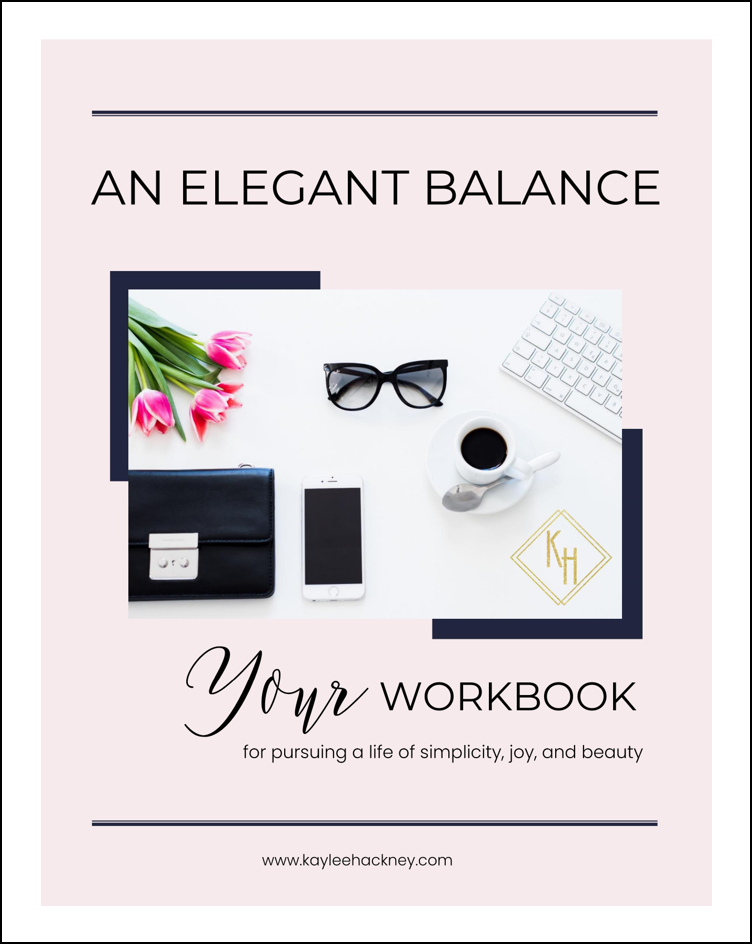Pregnancy Discrimination & Health
“Making the decision to have a child - it is momentous. It is to decide forever to have your heart go walking around outside your body.”
Prefer to listen?
For those of you who are new, I am a professor and work-family researcher and much of my recent research is focused on pregnancy in the workplace. I wanted to start today’s episode by telling my story of how I even started researching this topic.
When I was 22 years old, I was working on my MBA with the intention of pursuing a PhD in Organizational Behavior. During that time, I had some wonderful mentors who gave me support and encouragement through the whole application and interview process. But they also gave me a very realistic job preview of what life as a PhD student might look like: long hours, grunt work for professors, constantly feeling stupid, and very little time for a life outside of classes and research. In other words, not the ideal time to start a family.
And yet, after a semester under my belt and several deep conversations with my husband, we made the bold decision to stop letting a PhD program dictate our lives. We were going to start trying to have a baby.
It didn’t take long. By April, I was pregnant. Immediately I was overcome with a mixture of emotions. Extreme happiness and excitement about becoming a mother. But also, fear of what my advisor, professors, and colleagues would think. I started asking myself questions like “Will they take me seriously as a PhD candidate now?” and “What if they try to push me out of the program?.” I ruminated on these questions so much that it literally made me feel sick. Finally, I decided to forget the “don’t tell anyone about your pregnancy until after 13 weeks rule” (which is a whole other episode in and of itself) and decided to tell my advisor that I was expecting. I figured even if she was upset with me, getting it over with was going to be better than worrying about it for the next 5 weeks.
I still remember that meeting vividly. My heart was pounding as I walked into her office. We made some small talk and eventually I got around to telling her that I was pregnant. I then burst into tears. She jumped up from behind her desk and came around to give me a hug. And I’ll never forget her words… “Are we excited about this baby?” and I said “Yes! I’m very excited about this baby, but I wasn’t sure if you would be.”
This experience kickstarted what has now been 8 years of researching pregnancy in the workplace. I was extremely lucky to have the support that I did but it’s not like that for all women. Despite being illegal, pregnancy discrimination occurs frequently in today’s workplace. Over the last 5 years alone, almost 15,000 discrimination claims have been filed in the U.S. with the EEOC. Pregnancy discrimination can be defined as “unfavorable treatment of women at work due to pregnancy, childbirth, or medical conditions.” It’s not always blatant mistreatment either. Often, it’s subtle hostile behaviors such as being socially isolated at work, negatively stereotyped, and treated rudely.
Want to start creating your ideal work-life balance?
I’ve created this workbook just for you! Inside, I help you define what work-life balance looks like for you and share some tips on creating that balance.
You can get it by clicking the button below!
Why does pregnancy discrimination occur?
Pregnancy is stigmatized in the workplace because pregnant women do not live up to the “ideal worker” standard. The “ideal worker” is one who is fully available and committed to their work. When a baby is on the way, it sends the message to supervisors and coworkers that work will no longer be the top commitment of the pregnant employee. Pregnant women are often perceived as more emotional, irrational, less committed to their jobs, and less competent than other employees. Such stereotypes result in negative treatment of pregnant employees.
What does pregnancy discrimination look like?
Some examples of pregnancy discrimination include insults, undermining, making statements that convey the assumption that she is not committed to her job or not going to return to work, being put down in a meeting, being removed from a project that requires longer hours or travel, being excluded from important meetings or conversations, rude or derogatory comments about the shape or size of her body, inappropriate touching, unsolicited comments or questions, being passed up for a promotion, and ultimately being fired (Jones, 2017; Bar-On Shmilovitch et al., 2022).
Pregnancy Discrimination, Stress, and Health – My research
Now that you have an idea of what pregnancy discrimination is, I wanted to share some of my recent research with you. As you can imagine, being faced with pregnancy discrimination at work is stressful! Being afraid of making a wrong move during pregnancy because it might result in punishment or even being let go is extremely draining. Even just dealing with rude comments on a daily basis is enough to wear us out.
There’s a lot of research showing that stress during pregnancy is not good for either the mother or the baby. What is unclear though is how workplace stressors, such as pregnancy discrimination, play a role. In our study, we examined exactly this – Does pregnancy discrimination lead to increased stress for the mother? And if so, how does that impact her health and her baby’s health?
Indeed, we found that pregnancy discrimination led to increased stress for pregnant employees and that this stress was detrimental for both mother and baby (Hackney, 2021). Mothers experienced greater post-partum depressive symptoms while babies had lower birthweights, gestational ages, and had to visit the doctor more often in the first few weeks of life.
This is clear evidence that pregnancy discrimination in the workplace should be taken seriously.
We were fortunate enough to have the chance to follow-up with the participants from our original study to determine the long-term effects of pregnancy discrimination. Thankfully, the babies bounced back. We were unable to tie pregnancy discrimination and stress to any health outcomes for the children, who were now 2-5 years old. However, mothers were still struggling and reported poorer health, depressive symptoms, and parental stress.
Calling all Managers
It is near impossible to achieve work-life balance when the workplace is diametrically opposed to accepting the fact that employees have a life outside of work. Like I said before, much of the pregnancy discrimination stems from the fact that pregnant employees violate the “ideal worker” norm. But nobody can be the “ideal worker”; ideal does not exist. Instead, managers would do well to support their pregnant employees throughout this complex, challenging, and beautiful life event.
In our recently published Harvard Business Review article, we outline several steps that managers can take to support their pregnant employees. I won’t go into too much detail here (If you’re interested, I encourage you to go read it; I’ll link it in the show notes.) However, I do want to offer some broad steps managers can take. These include:
1. Helping your employees negotiate parental benefits
2. Offer flexible work arrangements
3. Accommodate time off for doctor’s appointments
4. Facilitate interactions with coworkers
5. Intentionally create an inclusive organizational climate
When it really comes down to it, I encourage you to maintain an open dialogue with your pregnant employees. Every women is different. Every pregnancy is different. Based on this alone, the support that each woman needs and wants will vary. Communication truly is key here.
Whether you’re a manager, pregnant employee, or simply have friends and colleagues who are pregnant or might be pregnant someday, I hope that this episode has helped you see the importance of taking pregnancy discrimination seriously and supporting pregnant employees throughout their pregnancy so that they and their babies can avoid detrimental health outcomes. I know this episode was a bit different than my typical work-life balance episodes, but I truly enjoy sharing my current research projects with you. If you enjoyed this episode, please consider sharing it with another woman who might benefit from it. Also, you could simply take a screenshot of the podcast and share it to your Instagram stories – make sure to tag me if you do! I would be ever so grateful.
Have a beautiful, joy-filled week friends!
Is a better work-life balance one of your goals this year?
I’ve created a workbook just for you!
If you’re interested in creating a work-life balance characterized by simplicity, joy, and beauty, why don’t you start by checking out my Elegant Balance Workbook? In it, I help you define what work-life balance looks like for you and share some tips on creating that balance. I’ve said it before, and I’ll keep saying it – Balance doesn’t happen by accident.















Sharing this with you makes me smile – I love thinking back to the girl who felt confident and beautiful in that rainbow shirt and the girl who refused to attend her college classes in baggy t-shirts and Ugg boots and instead opted for a sequined top. Because despite what I think about those choices now, in each of those seasons I was intentionally using personal style to my advantage.